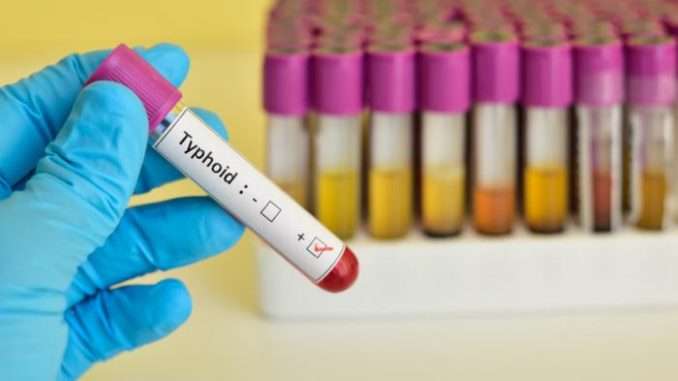
Typhoid is a bacterial infection that may lead to a higher fever, diarrhea, vomiting. However, maybe spread through the bacteria salmonella Typhi. Typhoid infection spread from one person to the other through contaminated food and water. However, it is more severe in places where people wash hands rarely. One may get it through carriers of this bacteria. Therefore, if typhoid is identified early, antibiotics are used to treat the illness.
Causes of Typhoid.
Typhoid is infect one as a result of a bacteria that is spread through food, and drinks with contamination. However, people are asymptomatic carriers of typhoid, this means that they harbor the bacteria but suffer no ill effects.
Symptoms
Symptoms normally begin between 6 to 30 days after exposure to the bacteria. The major symptoms of typhoid are fever and rash.
Other symptoms include.
- weakness.
- abdominal pain
- constipation.
- headaches.
- diarrhea.
How to treat.
There is one effective way to treat typhoid that is through antibiotics. For instance, the most commonly used is ciprofloxacin and ceftriaxone. Other than antibiotics, it is important to rehydrate by drinking plenty of water. In more severe cases where the bowel has become perforated, surgery may be required.
Ways to prevent Typhoid.
Countries with less access to clean water and facilities to wash have typically higher chances of typhoid cases. However, there are ways to prevent the disease from passing from one person to the other. They are;
- wash your hands frequently with warm water and soap.
- Avoid use of untreated water.
- Avoid raw meat and vegetables.
- Get a vaccine against its fever
Vaccines.
- Jennifer Lopez Bio-age, Religion, Family, Net Worth.
- Chris Kirubi-Bio, Birth, Wife, Networth, Death, Latest Info.
- Cory Hardrict age, family, wife, children, career, and movies.
- Alexis Rivas KNSD, age, family, children, husband, net worth.
- Scott Fisher wiki, age, KTBC-7, family, children, wife, net worth.
- Jose Mourinho age, childhood, wife, children, career, Net worth
- Goran Erickson age, origin, wife, children, cancer, career, net worth .
There are two types of vaccine against salmonella typhi, which reduces the probability of getting the disease. These are;
Live attenuated vaccine and inactivated vaccine injection.
However, it is important to remember, the protection produced by the vaccine does not last long term. Therefore, booster vaccination is administered every three years.
Fast facts about the disease.
This has become a common bacterial infection in countries with low incomes. However, the only treatment so far is antibiotics. Also, people carry the bacteria without symptoms. Therefore, untreated fatal is around 25% of the case. Whenever symptoms develop, seek medical advice.
- Kenya Medical Training College, courses, requirements.
- How is The Lenana Boy school and location?
- Egerton university, fees, location, courses.
- A list of special secondary schools, and contacts.
- What is the history of Kenyatta University?
- Mount Kenya University history, fees, courses
- List of best private primary schools in Kirinyaga County.